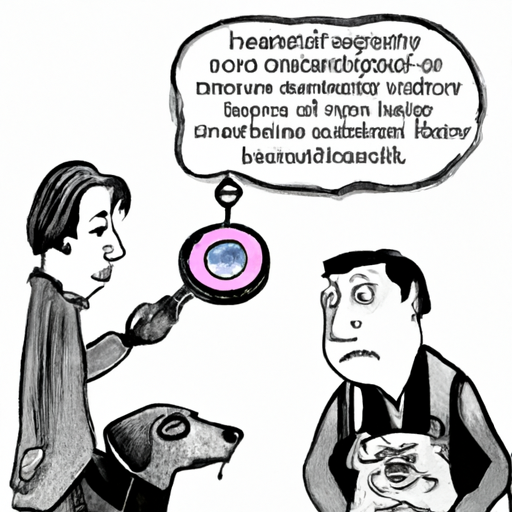Understanding Histiocytoma
You might wonder, what is a histiocytoma? A histiocytoma is a benign skin tumor that develops in dogs. They consist of an abnormal growth of histiocytes, a type of cell that forms part of your dog’s immune system. These tumors often appear as small, firm, dome-shaped masses on the skin.
Factors Leading to Histiocytoma
Histiocytomas in dogs can be caused by several factors.
- Age: Histiocytomas are more common in young dogs, typically those under three years of age.
- Breed: Certain breeds are more prone to histiocytomas, including Boxers, Dachshunds, and Bulldogs.
- Genetics: There may be a genetic predisposition for developing histiocytomas.
Remember, these are only possible factors and not definitive causes.
Symptoms to Look Out For
Your dog can’t tell you when something’s wrong, so it’s up to you to spot any signs. Here are some symptoms you should look out for:
- Rapidly growing, dome-shaped masses on the skin
- Redness and inflammation around the mass
- Hair loss around the tumor
- Your dog persistently licking or scratching the mass
Diagnosis and Treatment
For an accurate diagnosis, your vet will likely perform a fine-needle aspiration or a biopsy. This involves taking a sample from the tumor, which is then examined under a microscope.
If your dog is diagnosed with a histiocytoma, the treatment options include:
- Observation: As histiocytomas are benign and often resolve on their own, your vet may recommend simply monitoring the tumor.
- Surgery: If the tumor is causing discomfort or is not resolving on its own, surgical removal may be necessary.
- Medication: In some cases, your vet might prescribe medication to help manage any associated symptoms.
| Treatment | Description |
|---|---|
| Observation | Monitoring the tumor for changes |
| Surgery | Removal of the tumor |
| Medication | Managing associated symptoms |
Frequently Asked Questions
Q: Are histiocytomas contagious?
A: No, histiocytomas are not contagious.
Q: Can histiocytomas turn into cancer?
A: While histiocytomas are benign, they can sometimes transform into a malignant form called histiocytic sarcomas.
Q: Is there a way to prevent histiocytomas?
A: As the cause of histiocytomas is unknown, there’s currently no known way to prevent them.
Q: How long does it take for a histiocytoma to disappear on its own?
A: Most histiocytomas resolve on their own within 2-3 months.
Remember, while this information can help you understand histiocytomas better, nothing replaces professional veterinary advice. Always consult with your vet if you have any concerns about your furry friend’s health.



